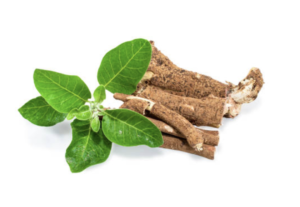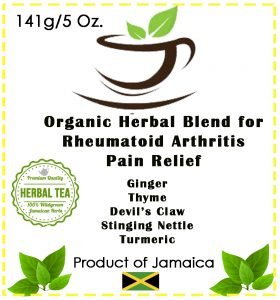10 Powerful Herbs to Boost Immunity & Prevent Strep Throat Naturally
Understanding Streptococcus and Strep Throat
Streptococcus is a genus of bacteria that includes various species, some of which are responsible for infections in humans. One of the most well-known types is Streptococcus pyogenes, also known as Group A Streptococcus (GAS), which causes strep throat. This bacterium can also lead to more severe conditions like scarlet fever, rheumatic fever, and post-streptococcal glomerulonephritis if left untreated.
How is Streptococcus Transmitted?
Strep throat is highly contagious and spreads through:
- Respiratory Droplets – When an infected person coughs, sneezes, or talks, they release droplets containing bacteria that can be inhaled by others.
- Direct Contact – Touching infected surfaces, objects, or a person’s hands and then touching the face can lead to infection.
- Shared Utensils & Personal Items – Drinking from the same glass, sharing a toothbrush, or eating with contaminated utensils can spread the bacteria.
- Close Contact in Crowded Areas – Schools, workplaces, and public transportation increase the risk of exposure.
Symptoms of Strep Throat
- Sore throat with pain when swallowing
- Red and swollen tonsils, often with white patches
- Fever and chills
- Swollen lymph nodes in the neck
- Headache and fatigue
- Loss of appetite
- Nausea or vomiting (especially in children)
How to Prevent Strep Throat Naturally
Preventing strep throat requires strengthening the immune system and practicing good hygiene. Here are some essential prevention methods:
- Wash Hands Regularly – Use soap and water or an alcohol-based hand sanitizer.
- Avoid Close Contact – Stay away from people who show symptoms of a sore throat or fever.
- Sanitize Surfaces – Clean frequently touched objects like doorknobs, keyboards, and phones.
- Boost Immunity with Proper Nutrition – A diet rich in vitamins and minerals can help fight infections.
- Stay Hydrated – Drink plenty of water to keep mucous membranes moist and resilient.
- Get Enough Sleep – Quality sleep helps the body recover and maintain a strong immune system.
Herbs to Strengthen Immunity Against Strep Throat
Several herbs have antimicrobial and immune-boosting properties that can help prevent and even alleviate strep throat. Here are some of the best herbs to incorporate into your routine:
1. Echinacea (Echinacea purpurea)
- Boosts the immune system and fights infections.
- Has antibacterial properties that help combat Streptococcus pyogenes.
- Can be taken as tea, tincture, or capsules.
2. Garlic (Allium sativum)
- Contains allicin, a natural antibiotic compound.
- Strengthens immunity and fights bacterial infections.
- Can be eaten raw, added to meals, or taken as a supplement.
3. Ginger (Zingiber officinale)
- Anti-inflammatory and antimicrobial properties help soothe the throat.
- Supports overall immune function.
- Can be consumed as tea, fresh juice, or in food.
4. Licorice Root (Glycyrrhiza glabra)
- Acts as a natural throat soother and has antiviral and antibacterial properties.
- Reduces inflammation and pain in the throat.
- Can be consumed as tea or lozenges.
5. Turmeric (Curcuma longa)
- Powerful anti-inflammatory and antimicrobial properties.
- Helps reduce swelling and throat pain.
- Can be mixed with warm milk or tea.
6. Elderberry (Sambucus nigra)
- Rich in antioxidants and known for antiviral properties.
- Supports respiratory health and reduces symptoms of infections.
- Available in syrup, gummies, or tea.
7. Oregano (Origanum vulgare)
- Contains carvacrol, a potent antimicrobial compound.
- Helps fight bacterial infections and boost immunity.
- Can be used in food, tea, or essential oil (diluted for gargling).
8. Thyme (Thymus vulgaris)
- Has strong antibacterial and expectorant properties.
- Supports respiratory health and relieves sore throat.
- Can be used as tea or in herbal steam inhalation.
9. Slippery Elm (Ulmus rubra)
- Coats the throat and reduces irritation.
- Supports healing of inflamed tissues.
- Available as lozenges or tea.
10. Honey & Propolis
- Natural antibacterial properties help soothe throat infections.
- Propolis, a resin produced by bees, has strong antimicrobial effects.
- Honey can be taken with warm water, tea, or lemon.
How to Use Herbs for Strep Throat Prevention and Treatment
- Herbal Teas – Make a tea with a combination of echinacea, licorice root, and ginger to strengthen immunity.
- Gargles – Gargle with warm salt water, oregano tea, or diluted apple cider vinegar to kill bacteria in the throat.
- Herbal Syrups – Elderberry and honey syrups can be taken daily to boost immunity.
- Steam Inhalation – Inhaling steam infused with thyme, eucalyptus, or oregano can help clear bacteria from the respiratory tract.
- Essential Oils – Diffusing antibacterial essential oils like tea tree, oregano, or eucalyptus can purify the air and prevent infections.
When to See a Doctor
While natural remedies can help strengthen immunity, strep throat requires medical attention if symptoms persist or worsen. Seek medical care if you experience:
- Severe throat pain that lasts more than 48 hours
- High fever (above 101°F or 38.3°C)
- Difficulty swallowing or breathing
- White patches or pus on the tonsils
- Persistent swollen lymph nodes
Doctors typically prescribe antibiotics like penicillin or amoxicillin for strep throat to prevent complications. However, combining medical treatment with immune-boosting herbs can speed up recovery.
Conclusion
Strengthening immunity with herbs is a powerful way to protect against infections like strep throat. By incorporating immune-boosting herbs like echinacea, garlic, ginger, and elderberry into your diet, you can enhance your body's ability to fight off bacteria naturally. While herbal remedies are beneficial, always seek medical advice for severe infections or persistent symptoms. A holistic approach combining good hygiene, a healthy lifestyle, and herbal medicine can help you stay strong and resilient against Streptococcus pyogenes.











